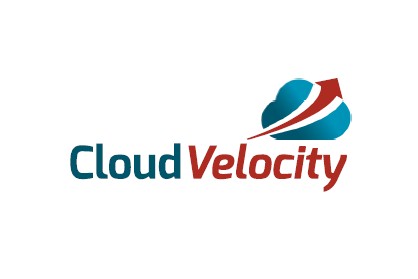Startup CloudVelocity is tackling the hybrid cloud match through the point of view of purposes and software which are currently working on client web sites and moving those up in to the general public cloud, all with out any adjustments for the code. In contrast to what Microsoft, Rackspace or VMware concentrate on in terms of launching companies especially inside of their very own networks, CloudVelocity states it really is using an open technique: Start any app you've got to your variety of community cloud alternatives.
CloudVelocity performs by examining programs that a buyer wants to maneuver up in the cloud as well as the firm's computer software will determine each of the root paths that the method helps make. In carrying out so, the computer software creates a blueprint of everything that software should operate, from database servers to compute, storage, and networking servers, in addition protection insurance policies just like the Lively Listing of LDAP integrations. After the CloudVelocity software is aware of exactly exactly what the app seems to be like, it provisions those same methods in a community cloud environment.
By spinning up the application inside the cloud, it makes it possible for companies to simply migrate programs to and in the cloud, or prolong purposes to take advantage of the dimensions general public cloud methods supply. Moreover to CloudVelocity supporting authentication credentials, the computer software also immediately encrypts data in motion and at rest, and spins up cloud-based virtual machines in Amazon Web Service's digital private cloud, that happen to be assets focused on person consumers rather than shared on the multi-tenant platform.
"There is undoubtedly a demand for onboarding' applications to cloud environments," says Gartner analyst Aneel Lakhani, who didn't comment exclusively on CloudVelocity, but instead the different techniques to developing a hybrid cloud. Initially migrating applications on the cloud necessary moving from bodily machines to virtual devices, then from an in-house virtualized device to a hosted one particular, that's a cumbersome and error-prone process. "We've observed the rise of items and companies that find to solve for your multi-system software room by comprehending or modeling multi-system applications in order to migrate or deploy them to numerous environments."
CloudVelocity isn't really alone in undertaking this, other individuals consist of CliQr, CohensiveFT, and Ravello, Lakhani claims. Every single takes a rather various strategy however. Some design the applying, other individuals containerize the app and CloudVelocity analyzes the application to duplicate it within the cloud.
Cloud suppliers will do this for patrons as well, nevertheless the advantage of utilizing a third social gathering like CloudVelocity can it be will offer a higher degree of independence without becoming locked into only utilizing your cloud provider's system.
CloudVelocity's One particular Hybrid Cloud offering is priced around $15,000 for some multi-system apps, but it varies based about the complexity in the task. The corporate currently only deploys to Amazon Web Solutions, however it hopes to incorporate other general public cloud platforms quickly.
Additionally to asserting its general availability today, the company also explained it elevated $13 million in oversubscribed venture funding from 3rd Stage Ventures with contributions from Pelion Venture Companions and Mayfield Fund. The business was started by 4 members of the staff which are working on their third startup with each other, such as Rajeev Chawla and Anand Iyengar, founder and CEO and CTO respectively, who equally worked at NeoPath (which was offered to Cisco), Ingrian (which was informed to SafeNet) and Solar.


















